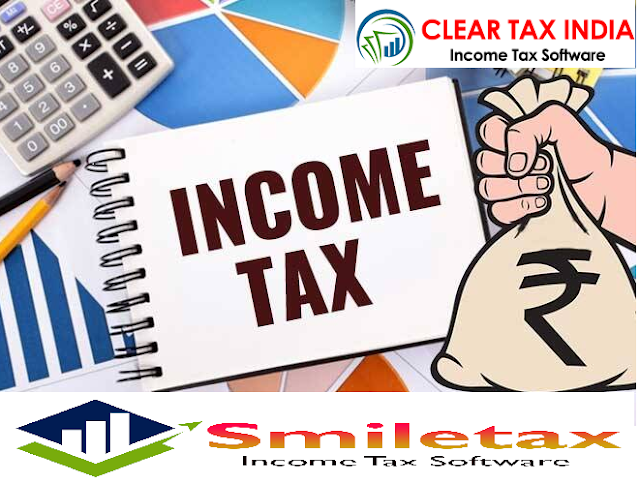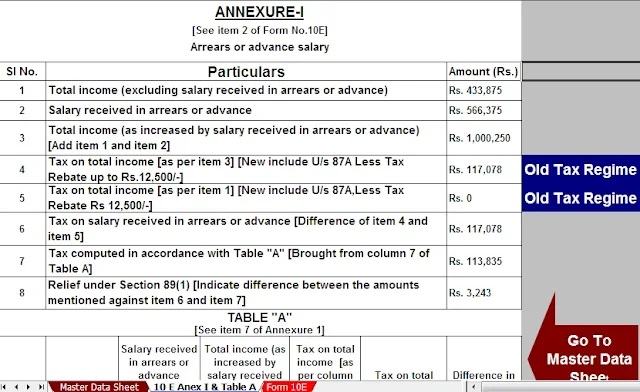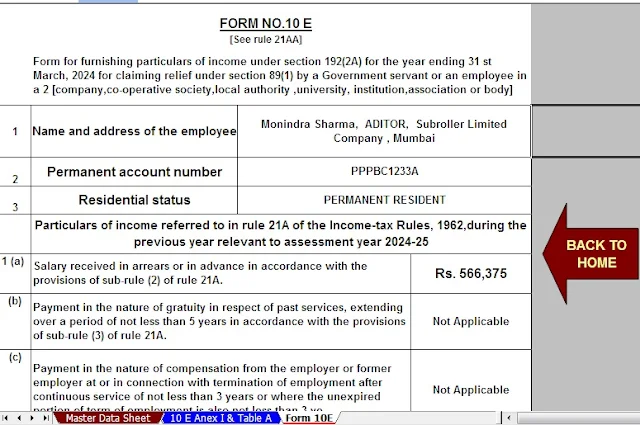Some major changes in the New Income Tax Regime for the F.Y.2023-24 and A.Y.2024-25 as per
Budget 2023|From April 1, 2023, the new fiscal year 2023-24 will begin. Union Finance Minister
Nirmala Sitharaman’s Budget announcements will come into effect from April 1. Here's a brief
overview of the income tax changes that will affect taxpayers in 2023-24.
1. The new income tax regime will be the default regime with effect from April 1, 2023, the new income tax regime will operate as the default tax regime. However, taxpayers will still have the option of choosing the old regime. If you are a salaried taxpayer, they will be deducted from TDS based on the new tax regime rates. Therefore, when declaring investments, you need to choose carefully between the Old and New Regimes.
2. Changes in income tax plates under the New TaxationRegime
Slab Tax rates
Up to 3,00,000 zero
3,00,001 - 6,00,000 5%.
6,00,001-9,00,000 10%.
9,00,001-12,00,000 15%.
12,00,001-15,00,000 20%.
Over 15,00,000 30%.
3. Refund u/s 87A under New Tax Scheme
The rebate u/s 87A has increased under the new tax Regime. Taxpayers with income up to Rs 7 lakhs do not have to pay any tax. The maximum rebate under the New Tax Regime is Rs 25,000. In short, anyone whose income under the new tax regime is less than or equal to Rupees Seven lakhs.
4. Normal deductions
The standard deduction of Rs 50,000 under the old regime will also be extended under the new regime. Under the new regime effective from April 2023, a standard deduction benefit of Rs 50,000 will be allowed for salaried employees and retirees opting for the new tax regime.
5. Payment of additional fees
The surcharge rate of 37% was reduced to 25% under the new Tax Regime. Taxpayers with income above Rs 5 crore will pay a surcharge of 25 % instead of 37 % under the new Tax Regime.
6. Life Insurance Policies
W.e.f 1st April 2023, if the aggregate premium of life insurance policies issued from 1st April 2023 exceeds Rs. 5 lakhs, the gain arising from such policies above the annual premium of Rs.5 lakh will be taxable (i.e. up to Rs. 5 lakh will be exempted)
7. Reimbursement of holiday pay
Leave exemption The refund exemption in retirement for non-government salaried employees has been increased to Rs 25 lakhs from Rs 3 lakhs on April 1, 2023
8. Senior Citizens Savings Scheme
Senior citizens can now deposit up to Rs 30 lakh in the senior citizen savings scheme, compared to the previously restricted deposit limit of Rs 15 lakh. Also, the maximum deposit for the monthly income scheme has been increased to Rs 9 lakhs from Rs 4.5 lakhs for individual accounts. For joint accounts, the threshold has been increased to Rs 15 lakhs from Rs 7.5 lakhs





